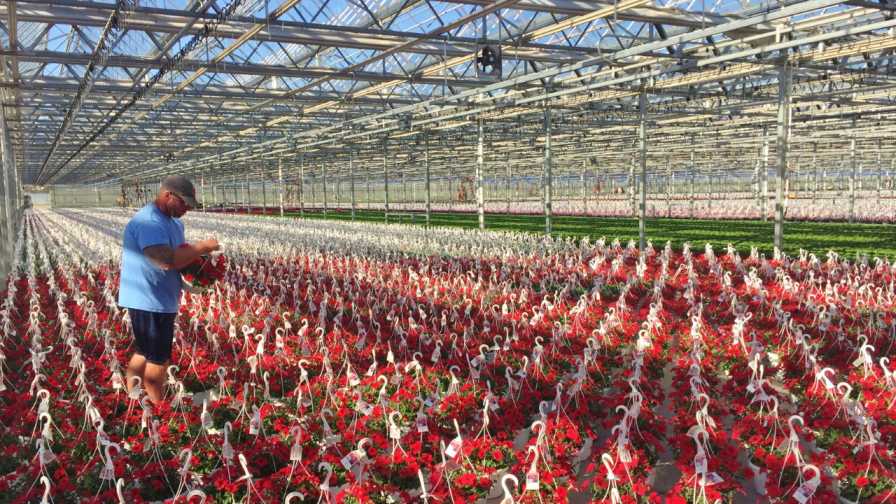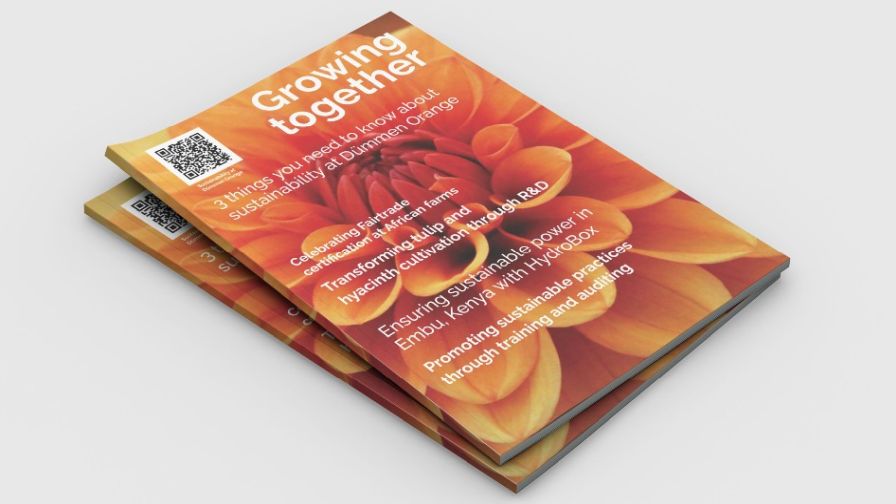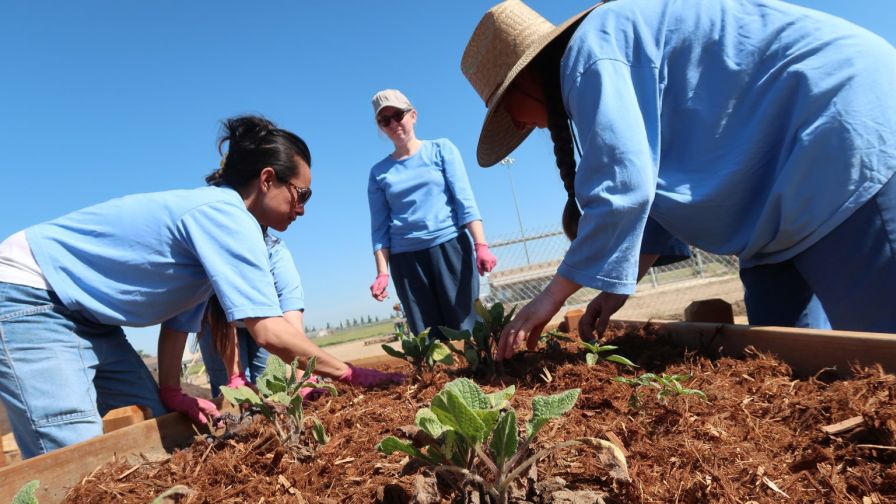3 Reasons Pursuing Work-Life Balance Should Be Your Priority

The day-to-day task of walking through a greenhouse may seem mundane, but if you can do so while taking pride in what you do, it’s a win-win when trying to achieve a proper work-life balance.
Photo courtesy of Dallas Johnson Greenhouses
Farming is a way of life. For many, the greenhouse is the place where growers harbor family memories and interact with their family. However, for the majority, it is still just work. With this in mind, how do we achieve a balanced life in the greenhouse industry?
In preparation for this article, I went to the literature on the subject and interviewed some people in our industry. Much of the literature invites readers to compartmentalize their work and non-working life. In contrast, my interviewees concurred that horticulture is an intrinsic part of their lives, and they find it difficult to disconnect. Here, I share three lessons I learned on this topic.
1. Love What You Do
I hope most growers already have a job they like. Reality is that it may be impossible to love every aspect of the job. The ideal job is one in which a good portion of our daily tasks are something we enjoy doing and growing into. Nevertheless, there are many activities in greenhouses — like sticking cuttings, watering, and scouting — that are important but may feel repetitive, slow, and boring. It may be difficult to find your passion in these specific tasks; however, you can still find personal satisfaction.The trick, according to experts and practitioners, is to think not about the activity but about the personal pride and joy of doing something well. This is a win-win situation for employer and employees. Greenhouse owners notice when employees do things well. They value the people who are part of the team at every step, and they are willing to compensate the employees for the extra effort. If your supervisor is doing their job well, they will communicate with you about your performance. Understand that no supervisor will pat you on the back daily, only you can do that. The bottom line is even if you do not like a specific task, you can love the way you do it. You will become, in the long term, a more desirable employee. In the short term, you come back home at the end of the day with a sense of satisfaction.
“We are, each of us, a product of the stories we tell ourselves.”— Derren Brown
2. Stay Healthy
People in our industry work hard, long days that are exhaustive to the body and mind, especially during peak season. Seasonality is a big problem in all agricultural businesses. Business owners need to hire more people during peak season, and it is becoming more difficult every day. With limited temporary staff, permanent employees may face more responsibilities that result in longer workdays.
I asked growers if they find time to take care of themselves during peak season. The answer was simple and consistent: “I don’t have time.” We cannot change the seasonality of our business; however, we can change our approach to work in a way that daily habits protect our employees and ourselves from the cruel working hours.
As individuals, we can acquire some habits to enhance our health. There is scientific evidence that consistently conducting these activities have short- and long-term benefits on our health.
Eat well. Eat mostly non-processed food rich in vegetables.
Sleep. Sleep as much as possible — ideally seven to nine hours.
Move. Most jobs in greenhouses are very energetic. We surely surpass the 150 minutes of moderate to intense physical activity throughout the week recommended by the World Health Organization.
Be mindful. Take a second to appreciate the plants, the greenhouse, and the people around you. Meditate or pray while you work.
As supervisors, we understand that happy employees are more productive and more likely to stay in the company. Ask yourself, what are the things you can do to improve the quality of time for your staff or avoid stress? For example, a nursery in Connecticut takes a few minutes before they begin their workday to do a guided-mindful meditation. I am not sure how they measure the impact of this activity, but it costs them almost nothing to do it. When I asked the employees about it, they seemed to be proud to take the time to do this as a group.
Other operations have spaces where their employees play soccer or basketball during their lunch break. Another grower once told me that he takes the time to know his employees closely and asks them about their families. For him, it is not only a business strategy, he cares about them.
“You cannot expect that a person with a sick kid is going to work effectively,” he said. “If I know that, we can always accommodate at work and possibly help them. It is good for both of us to take care of each other.”
3. Put First Things First
Build, sustain, and grow relationships. A life in which work governs our time can end up hurting or breaking the most important aspect of our lives — personal connections. Some people regret missing their children’s childhood, distancing from their spouses, or disconnecting from family and close friends because they were always at work. This price is too high to pay.
The quantity of time we have to share with our loved ones is limited during the peak of the season. Hence, we have to be mindful about spending quality time. That is why we started this article by setting a mindset that brings you back home with a feel-good, positive attitude. You have a small amount of time to spare, and you want that time to be as good as possible. The opposite would only result in a snowball of problems and stress.
I know this for sure. We are not as important to the organization as we think we are — regardless of our position. We are all replaceable, and the organization will keep moving in our absence. I am not saying we should jump off the wagon on any random day. I am saying that there are times of the year when your presence will make a big difference in the job (peak season), but there is a time when you can take a break.
A National Public Radio survey reported that 49% of Americans did not take all their paid-vacation time in the last year. Some articles claim that not taking vacation increases the likelihood of negative long-term effects on health. I spoke with a grower who said he had not seen his mother for seven years because he was always too busy. What a major loss in human connection. The directive here is simple. Take time off when you can. Use that time to share time with your people. Go to a new place, or learn something new. I promise when you get back you will be re-energized. You will (almost) never regret taking time off.
Farmers are the cornerstone of America. Their hard work has helped improve the regions in which they produce their crops. America still needs productive farms. Hence, we need to protect our growers and workers, especially now when recruiting new employees and farm succession are uncertain. A balanced life or a life of satisfaction is one in which we meet our basic needs, we feel accomplished, and we share with loved ones. Therefore, we should put urgency in its place and remember that the ultimate goal is to spend our lives doing the things we believe are most important to us — and that may differ by stages of our lives and seasons of the year. Work-life balance is something that employers and employees must pursue for the mutual benefit.











